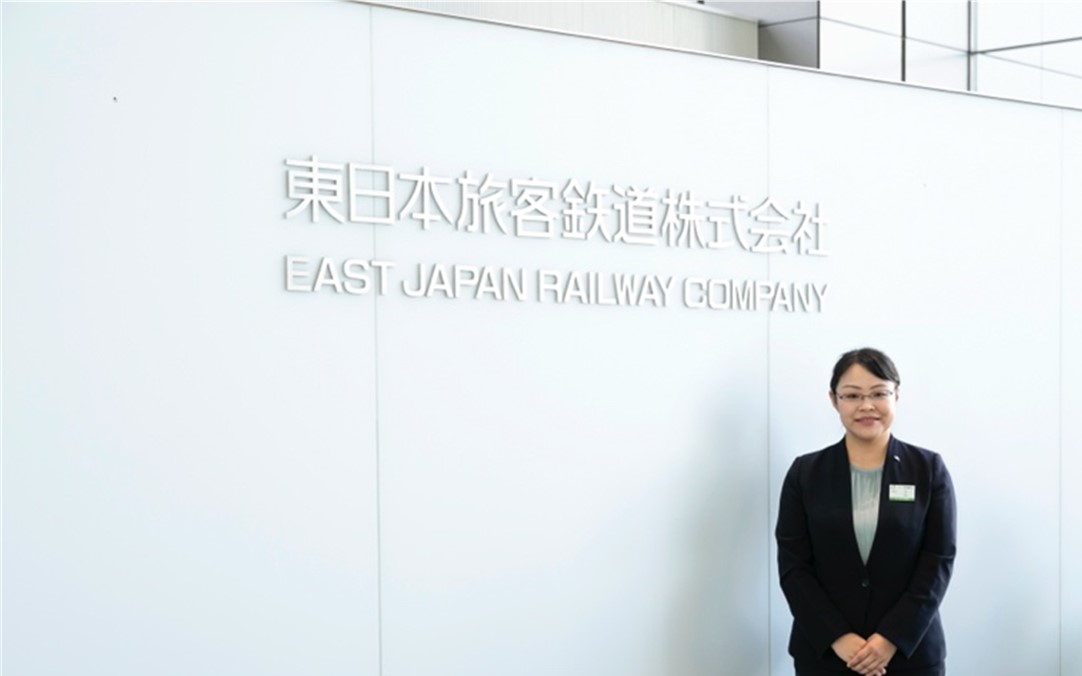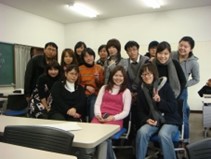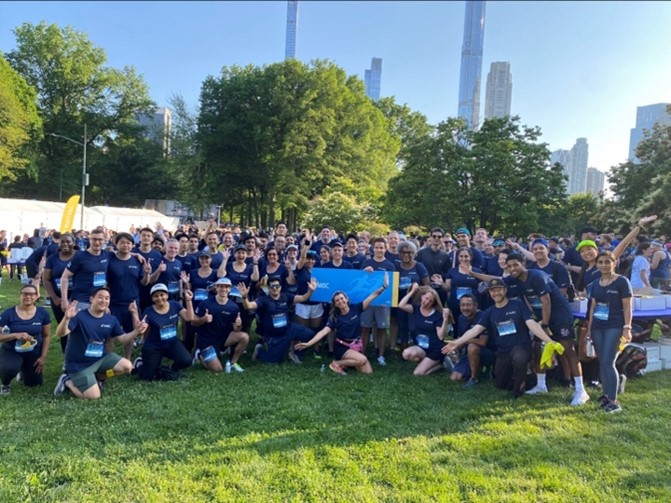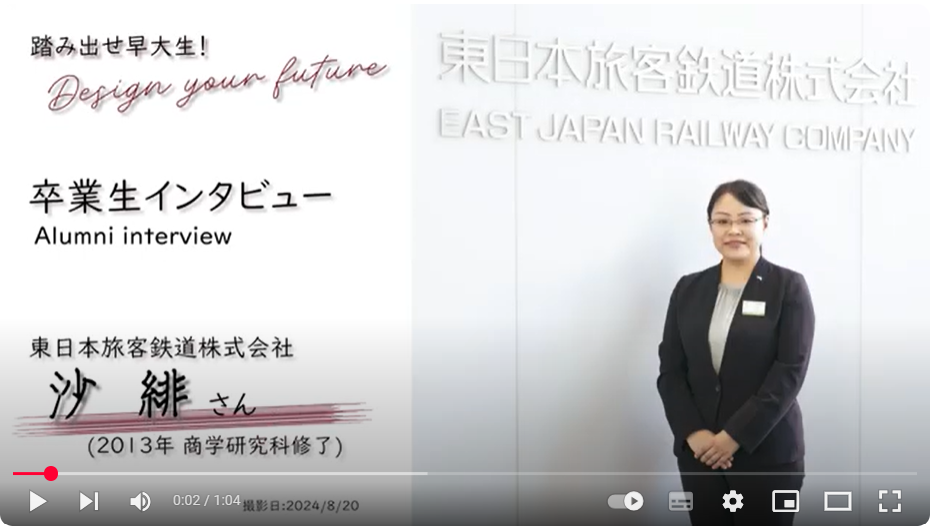
Fei Sha, East Japan Railway Company (JR East)
Graduated from the School of International Liberal Studies in 2011 and completed the Graduate School of Commerce in 2013
◆1 minute highlight movie
Launched a university club and there discovered what I like and am good at
I decided to study in Japan after listening to a lecture given by the dean of Waseda University when I was in a Chinese high school that has a sister school relationship with the university. Learning in the lecture that the dean, who is from the United Kingdom, now teaches in Japan after building a career around the world, including in the United States and Russia, I thought this university would help me broaden my horizons to become an active international player. This is why I chose Waseda University.
As an undergraduate, I majored in media economics at the School of International Liberal Studies, and after advancing to the Graduate School of Commerce, I studied corporate diversification. I was also actively involved in extracurricular activities, such as working as a host at a Chinese restaurant, a Chinese tutor, and a teaching assistant, and these part-time jobs helped me learn Japanese.
One memorable event of my college days is launching a travel consultation club for short-term international students. To build the popularity of the club from scratch, I put a lot of effort into conveying its activities and appeal, to recruit consultants and increase the number of club members. There were many struggles with running the club, but I really enjoyed thinking about “Where to start?” I also found out that this kind of role is what I am good at, which was a great experience for me.

A photo taken with my classmates from the Japanese class in the undergraduate school.
Deepened social learning through corporate analysis as part of my graduate school research
I considered returning to China and finding a job after graduating from undergraduate school, partly due to the Great East Japan Earthquake. After starting job hunting in China, however, I began to think that there were more chances for me to do what I want in Japan, where new graduates are hired for career-track positions regardless of their majors in college, than in China, where new graduates generally start their careers in specialized positions related to their majors. I had some concerns but decided to return to Japan, go to graduate school, and then find a job in Japan.
Building upon this, immediately after graduating from undergraduate school, I started my job search earlier than other students, including participating in a short-term internship program at a foreign insurance company. This internship gave me opportunities to talk with employees who have various kinds of work experience, which made me realize that I was more interested in implementing practices than creating ideas.
After the internship, I gathered information mostly from operating companies, and what I found particularly useful was corporate analysis using the Nikkei Shimbun database. This was initially for my study in graduate school, but it led me to many discoveries, such as “This company has recently focused on overseas businesses!” and “Many don’t yet know, but this company is also doing another kind of business!” I also participated in company information sessions and internships for companies that interested me to gain a deeper understanding. I think job hunting is a great opportunity to learn about not only companies but also society. Deepening understanding of various businesses sometimes further clarifies what you want to do or your field of interest. Many databases are available for free at Waseda University, so I recommend that you use them.
Regarding Japanese proficiency required during job hunting, I do not think many companies expect international students to speak perfect Japanese at the time of hiring. It would be more meaningful to focus on broadening your horizons to find a company that works for you than spending a lot of time studying Japanese used in business situations.
Do not give up until you find a company that makes the most of your strengths
I decided to join JR East for the following reasons. Firstly, I thought the company would help achieve my two pillars set for job hunting—”serving as a bridge to overseas companies” and “contributing to society.” Secondly, new hires can start in the field, as station attendants for example, and be engaged in various types of tasks, which I found suits me. Since I joined the company, my role has changed at least every two years. I have experienced various jobs, such as working at the information center at Tokyo Station, as a conductor of the Yamanote Line, handling financial duties in the headquarters, and participating in a long-term training program on finance in New York. I am currently in charge of fundraising, and financial support for overseas subsidiaries. There is no direct contact with customers in my current job, but I feel my field experience allows me to analyze the current situation based on the facts to look toward the future. It is a job to create corporate value, which is challenging but very rewarding.
I was hired by JR East as a new graduate in the same way as other Japanese students. The greatest difficulty was expressing my thoughts in Japanese. I often got frustrated when I failed to put what I wanted to do into Japanese words, so I struggled for a while even after I joined the company. I looked up the words I did not know in the dictionary while watching comedy shows and also created more opportunities to talk with people, which helped me gradually learn how to convey my feelings.

A marathon event in Central Park I joined during my stay in New York for training.
This is my message to international students who consider working in Japan. You should think hard about how you would like to leverage your skills and strengths, instead of focusing on what you want to do, and which companies can help you grow these strengths. For example, there are huge differences in corporate culture between Japanese and foreign companies. It may be reassuring for you to know the company’s atmosphere through an internship before joining. If you feel that the company does not suit you after actually starting working, you can try searching for another job over and over because there are many companies that recruit semi-recent graduates. It is not unusual for international students to return to college for further study and then find a new job. Please do not give up until you find the right company for you.



